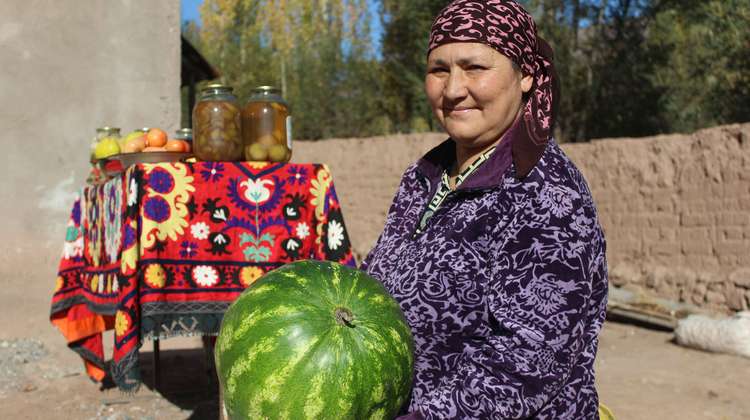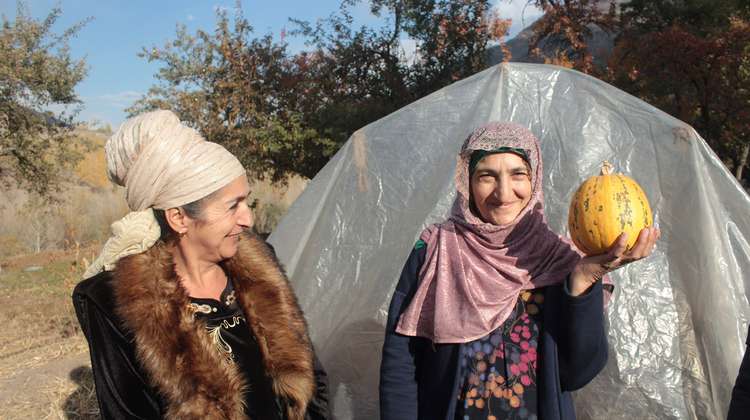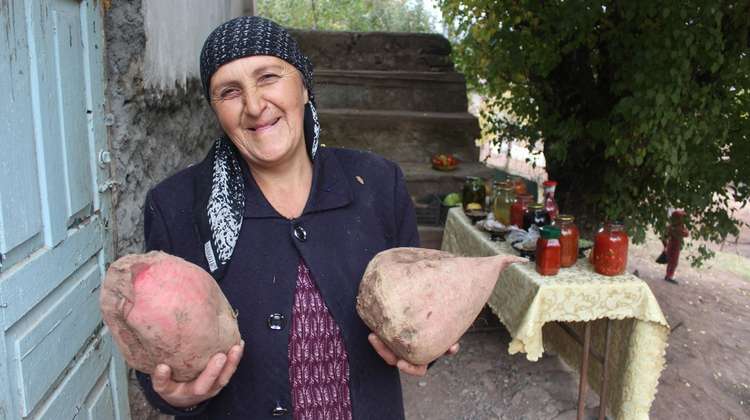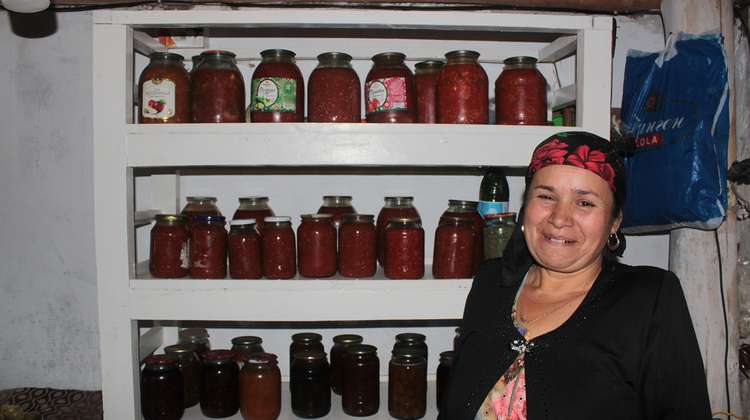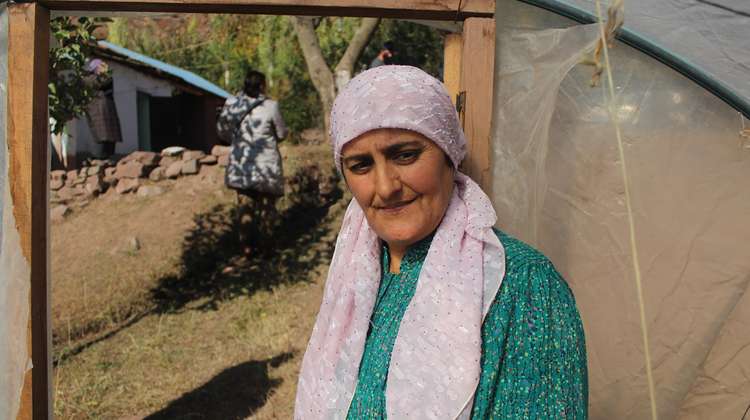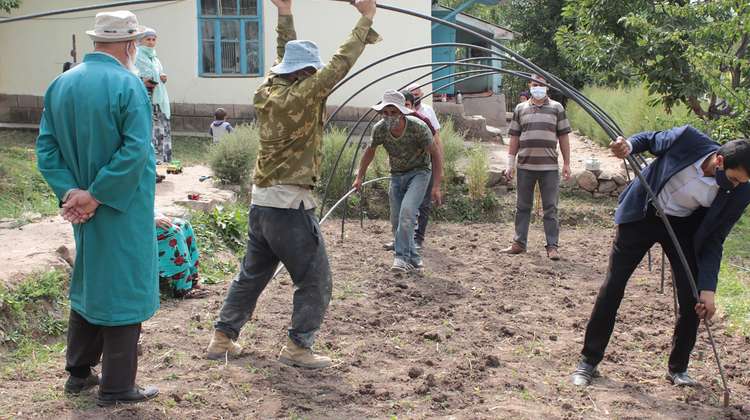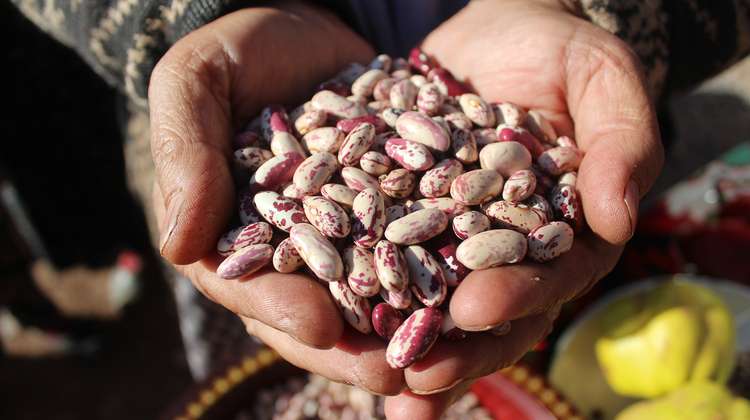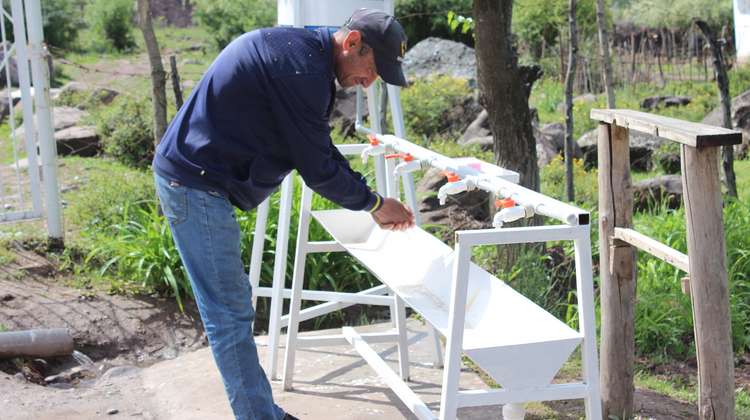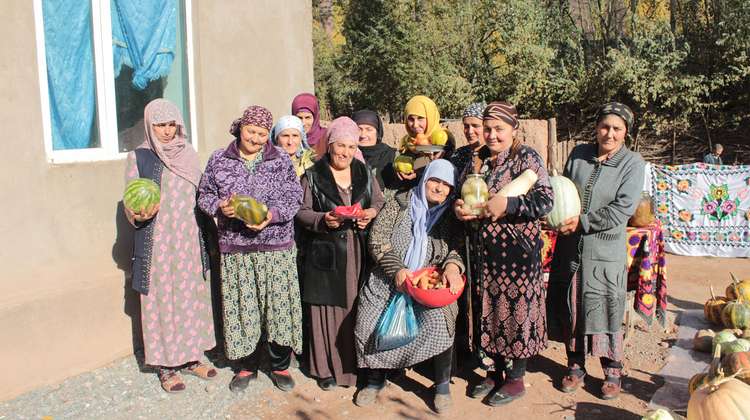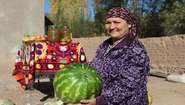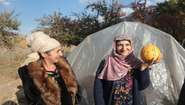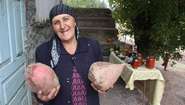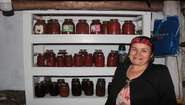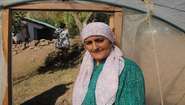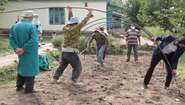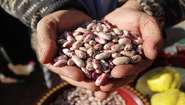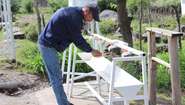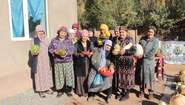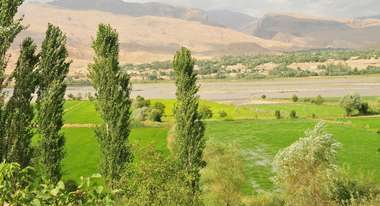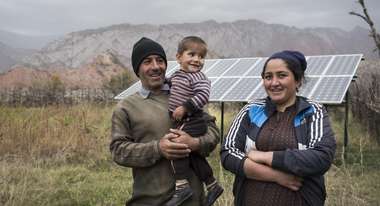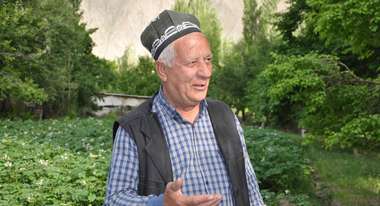Plants help grow self-confidence
Empowered women learn to take care of their nutritional needs through a Welthungerhilfe project in Tajikistan
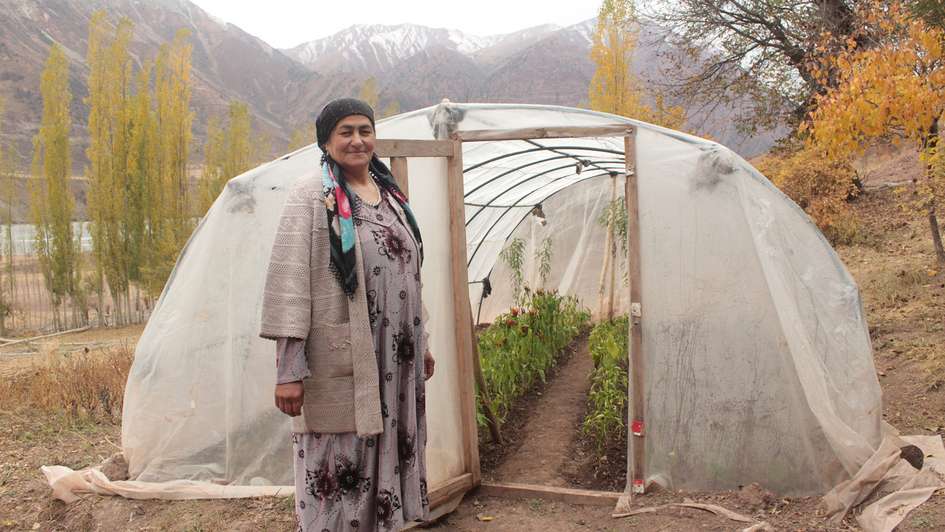
Dilbar Odineva smiles contentedly. The 47-year-old mother of five has been running a greenhouse for less than a year, and the results are good. In that short time, she has already been able to bring in several harvests. Dilbar attributes her success to the know-how she has acquired through the project: "In our region, it is too cold to simply plant the seedlings outside. In the project, we were taught how to grow them properly in the greenhouse and later bring them outdoors. I also found out that if I put a small oven in the greenhouse, I can further improve the results."
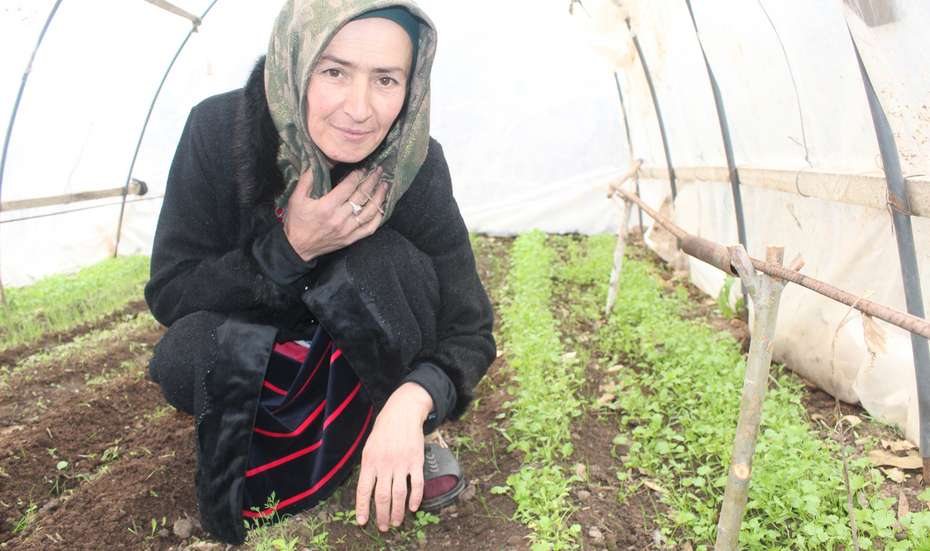
Fresh vegetables – all year round
Dilbar can now grow and harvest several times a year - even in the cold season. So her yields have increased dramatically. Now there is enough for her family, they can harvest fresh vegetables and herbs all year round. It's an important step in a region where nearly half the people don't have access to enough nutritious food. Moreover, Dilbar explains, they are now even making some profit: "We used to sell nothing, but now we sell our produce at the market or trade it for sugar, rice and soap. We can even support our son, who is studying medicine in Dushanbe." In addition, Dilbar, who is diabetic, has grown fond of her garmkhona (Tajik for "greenhouse," literally "warm house") for a very personal reason: "It's much warmer in the greenhouse than outside, and whenever I feel unwell, I come here. Weeding in the warmth calms my nerves. That's why the greenhouse is such a joy for me."
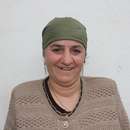
The children, who used to eat mostly bread, now also get to eat more eggs and different vegetables.
Mamlakat Tulaeva Nutrition leaderBetter nutrition thanks to newly acquired knowledge
Greenhouses, kitchen gardens and improved storage facilities are important factors in improving the nutrition situation in Tajikistan. However, knowledge about healthy nutrition is just as important. Together with our Tajik partner organization Fidokor, Welthungerhilfe trains medical staff and nurses on the symptoms and consequences of malnutrition. This also includes content on child care, safe motherhood and other health-related topics. In addition, there are cooking classes, food presentations and brochures for participants in the projects. In order to deliver the content to as many women as possible, 79 women's self-empowerment groups have been established with a total of 1034 participants. In these groups, women discuss best practices, share knowledge and learn from each other. They receive further input from nutrition leaders, who are elected from the ranks of the groups and receive additional training.
One of these nutrition leader is Mamlakat Tulaeva. She says that the participants in her group are between 23 and 53 years old, and most of the women have at least one child. In particular, the training sessions on breastfeeding have been instructive for her: "Before, we threw away the colostrum (the first milk) and gave water to the newborns. Now we know the benefits and have changed our practices. The children, who used to eat mostly bread, now also get to eat more eggs and different vegetables." Through cooking demonstrations with each other, healthy recipes are shared and the women learn how to use the new crops.
Improvement of general hygiene
Another project activity is the construction of hand washing facilities and the rehabilitation of drinking water systems, one of which is located in Mamlakat's village. The impact she has observed is promising: "We had many cases of hepatitis, which have now greatly decreased. This year there has not been a single case. In addition, child mortality, which is mostly related to diarrheal diseases, has decreased."
Key activities
At household level
- 1034 women are organized in 79 women self-help nutrition groups which meet regularly in all 64 villages, they participate in health and nutrition events and discuss related topics.
- Specialized education for 134 women nutrition leaders as information disseminators and leaders of the self-help groups.
- Cooking demonstrations on nutrient-rich recipes and distribution of a Healthy Nutrition Guide.
- Construction of greenhouses for 163 households including seed-sets.
- Distribution of seeds for kitchen gardens for 1132 households
- Improvement of storage facilities in 128 households
At district level
- Improved medical care through 7 trainers and 30 nurses, as well as training on how to recognize the first signs of malnutrition or undernourishment.
- Formation of sub-committees for nutrition and health under the existing village development committees.
- Capacity building for 7 community mobilisers from our local partner organization Fidikor in nutrition security.
At community level
- Improvement of drinking water systems in 4 communities.
- Promotion and construction of 84 handwashing systems in schools and health facilities.





